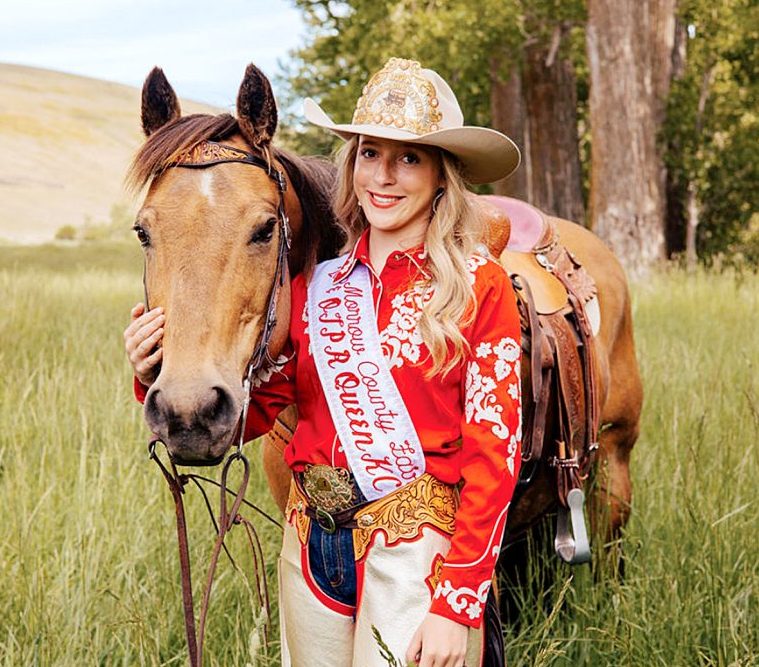From here to anywhere: The Big Lie and Native civilizations
Published 6:00 am Saturday, February 20, 2021

- Bette Husted
Sometimes reading a book can feel like having a reunion with old friends. Maybe that’s why I settled into Katherine Schlick Noe’s middle grades novel “Something to Hold” even as graphic videos of the Jan. 6 insurrection shown at the impeachment trial of Former President Trump were replaying in my mind and the COVID-19 pandemic continued to bring grief to so many. I was seeking the comfort of the familiar.
A friend from my teaching days on the Yakama Indian Reservation had recommended Noe’s book. “I could relate to the story in a very personal way,” she wrote. I could, too — the description of the Warm Springs Reservation, where the story is set, took me back to my visits to friends there, and so much of the story reminded me of my time at White Swan High School, and then Polson Middle School, of my Native students at BMCC and family members on the Umatilla Indian Reservation.
Trending
There was even a familiar connection to the writer. Though I don’t know her, I had met her mother, Mary Dodds Schlick, at Fishtrap. Mary’s memoir “Coming to Stay: A Columbia River Journey,” describes the family’s life on the Colville, Yakama and Warm Springs reservations, where Bud Schlick worked as a forest manager for the Bureau of Indian Affairs and where Mary became a master basket maker. Her book “Columbia River Basketry: Gift of the Ancestors,” is treasured for its deep understanding and appreciation of Native artists and their work. And Katherine, who also taught high school English in a small town in the Yakima Valley before she became director of the Literacy for Special Needs graduate program at Seattle University, wrote much of her story in workshops at Fishtrap.
But sometimes the familiar can be anything but comforting. In Katherine Schlick Noe’s story, non-Native Kitty runs into trouble when she recognizes the irony of her sixth grade classmates — all but two are Native — being required to sing the Oregon state song for a Columbus Day assembly. “Land of the Empire Builders, Land of the Golden West, Conquered and held by free men,” are the opening lines of “Oregon, My Oregon.” We are all immigrants, her teacher insists. And America is the greatest country in the world because Columbus and the others who came after him “had the courage and vision to seek out this empty and savage New World, to plant their flags so civilized men could tame it, men like our country’s forefathers and the great explorers who made the Oregon Territory safe for the pioneers.”
It’s the story many of us grew up with, reinforced by countless Hollywood movies and TV shows and, sadly, by our own communities. Recently, East Oregonian columnist Brigit Farley remembered being bused to the Whitman Mission to hear how “‘violent Indians brutally murdered well-meaning whites who were only trying to treat a measles epidemic.” That exhibit has been updated to reflect a more humane and inclusive view, she said — “a clash between two civilizations” — and I’m grateful that Oregon and Pendleton schools include Native history in their curriculum now.
But it strikes me that our country’s first Big Lie was the refusal to recognize indigenous cultures as civilizations, indigenous peoples as equal humans. The Big Lie is an expression we’ve become familiar with through the former president’s second impeachment trial. “If you tell a lie big enough and keep repeating it,” as Nazi Minister of Propaganda Joseph Goebbels knew, “people will eventually come to believe it.”
Indigenous peoples can attest to the ongoing effects of a Big Lie. So can Blacks, Latinx and Hispanic peoples, Asians, Muslims, women — the list goes on.
Goebbels also said, “The truth is the mortal enemy of the lie, and thus by extension, the truth is the greatest enemy of the State.”
Trending
I’m grateful that Katherine Schlick Noe leads readers to discover truth. And as her novel ends, Kathla (the name means grandmother) offers Kitty “something to hold” to help her remember that her roots are inside her, too, and will go with her wherever she goes. Kathla’s gift is a generous and loving gesture, one that reminds me of my own experiences in Native communities.
And that’s a familiar comfort.









